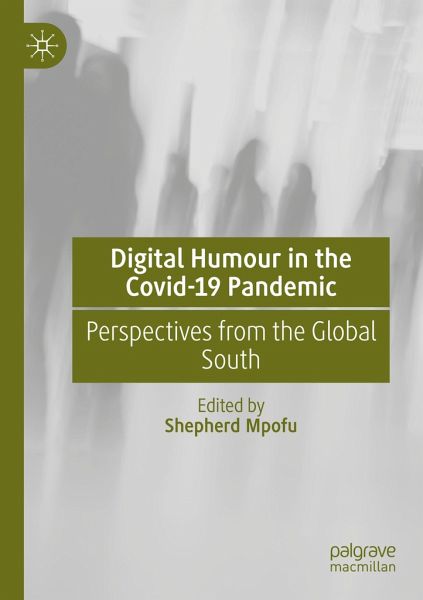
Digital Humour in the Covid-19 Pandemic
Perspectives from the Global South
Herausgegeben: Mpofu, Shepherd
Versandkostenfrei!
Versandfertig in 6-10 Tagen
113,99 €
inkl. MwSt.

PAYBACK Punkte
57 °P sammeln!
Digital humour in the COVID-19 pandemic: Perspectives from the Global South offers a groundbreaking intervention on how digital media were used from below by ordinary citizens to negotiate the global pandemic humorously. This book considers the role played by digital media during the pandemic, and indeed in the socio-political life of the Global South, as indispensable and revolutionary to human communication. In many societies, humour not only signifies laughter and frivolity, but acts as an important echo that accompanies, critiques, questions, disrupts, agitates and comments on societal aff...
Digital humour in the COVID-19 pandemic: Perspectives from the Global South offers a groundbreaking intervention on how digital media were used from below by ordinary citizens to negotiate the global pandemic humorously. This book considers the role played by digital media during the pandemic, and indeed in the socio-political life of the Global South, as indispensable and revolutionary to human communication. In many societies, humour not only signifies laughter and frivolity, but acts as an important echo that accompanies, critiques, questions, disrupts, agitates and comments on societal affairs and the human condition. This book analyses citizens' use of social media and humour to mediate the pandemic in a diverse range of countries, including Brazil, India, Kenya, Nigeria, South Africa and Zimbabwe. The book will appeal to academics and students of media and communication studies, political studies, rhetoric, and to policy makers.














